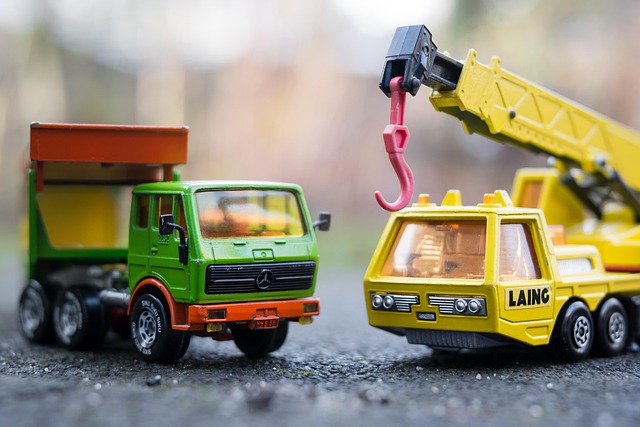Learn how to register your car in California with our step-by-step guide. Before you begin, understand the eligibility requirements, gather essential documents for DMV VIN verification, and conduct a vehicle history report check. Schedule an appointment at your local DMV, pay the necessary fees, and obtain your registration documents. Ensure everything is in order to avoid delays and smoothly transition into California’s vehicle registry system. Remember, accurate DMV VIN verification is crucial.
- Understand Eligibility Requirements for Car Registration in California
- Gather Necessary Documents for DMV VIN Verification
- Perform a California Vehicle History Report Check
- Schedule and Attend Your DMV Appointment for Registration
- Pay the Required Fees and Obtain Your Registration Documents
Understand Eligibility Requirements for Car Registration in California

Before registering your car in California, it’s crucial to understand the eligibility requirements set by the Department of Motor Vehicles (DMV). One key step is ensuring your vehicle meets all safety and emission standards. The DMV conducts a thorough inspection that includes a Vehicle Identification Number (VIN) verification to ensure the car’s authenticity and history are clear. This process helps prevent fraud and ensures only legitimate vehicles are on California’s roads.
Additionally, you’ll need to provide proof of insurance, pay registration fees, and present necessary documents like your driver’s license. For convenience, many services offer mobile VIN verification and inspection options, allowing you to complete these steps from the comfort of your home or office. These mobile vin verifiers can streamline the registration process by providing real-time results and ensuring a seamless experience.
Gather Necessary Documents for DMV VIN Verification

To register your car in California, preparing for the DMV VIN verification process is a key step. You’ll need to gather several essential documents, including the vehicle’s registration certificate from its previous state of residence, proof of insurance, and a valid driver’s license. The most critical document for this stage is the Vehicle Identification Number (VIN) report. This can usually be obtained through a mobile vin verification service or by visiting your local car dealership to request a vin inspection.
Ensure these documents are organized and readily available before heading to the DMV, as they’re necessary to prove ownership and complete the registration process smoothly. Having accurate and up-to-date information on hand will save you time and potential headaches during what can sometimes be a lengthy process.
Perform a California Vehicle History Report Check

Before registering your car in California, it’s crucial to perform a thorough check on its history. One essential step is to conduct a DMV VIN verification, which involves using the vehicle identification number (VIN) to access detailed information about the car’s past. This process ensures that the vehicle has not been reported stolen and provides insights into any previous accidents or significant repairs.
A mobile VIN inspection or verification through the Department of Motor Vehicles (DMV) is a convenient way to ensure compliance with California’s registration requirements. By utilizing this service, you can quickly cross-reference the information on file with the actual vehicle, making the registration process smoother and reducing potential issues down the line.
Schedule and Attend Your DMV Appointment for Registration

After gathering all the required documents, it’s time to schedule and attend your DMV appointment for car registration. This crucial step involves confirming your vehicle’s identity through a process known as DMV vin verification. Here, a mobile vin verifier plays a vital role in streamlining this procedure. By using a mobile vin inspection tool, you can ensure that your vehicle’s unique Vehicle Identification Number (VIN) is accurately captured and submitted to the DMV.
During your appointment, a DMV representative will cross-check your provided information and documents against the official records. This includes verifying the VIN on your car’s registration certificate with the one listed in the state’s database. With modern technology like mobile vin verification, this process has become more efficient, saving you time while ensuring the accuracy of your vehicle’s data.
Pay the Required Fees and Obtain Your Registration Documents

After completing your vehicle’s purchase, it’s time to register your car with the California Department of Motor Vehicles (DMV). To do this, you’ll need to pay various fees associated with registration and obtain essential documentation. One crucial step in the process is the DMV vin verification, ensuring that the vehicle identification number (VIN) is accurate and matches the vehicle you’re registering.
When ready, visit a local DMV office or utilize their online services to initiate the registration. You’ll be required to pay the registration fee, which varies based on your vehicle’s type and age. Additionally, a title transfer fee may apply if you’re registering a vehicle for the first time in California. Upon payment, you’ll receive your registration documents, including a registration card and a license plate, along with any necessary stickers or tags. For convenience, some individuals opt for a mobile vin inspection or mobile vin verification service to streamline the process further.
Registering a car in California is a straightforward process, provided you meet all eligibility requirements and gather the necessary documents. After completing a vehicle history report check using DMV VIN verification, scheduling an appointment becomes a breeze. During your visit, ensure you pay the required fees and obtain your registration documents, marking the successful conclusion of your car registration journey in the Golden State.
